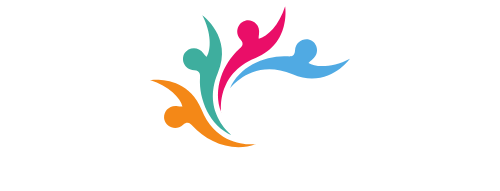Poverty is one of the most pressing challenges faced by societies worldwide. It traps generations in a cycle of struggle, limiting access to opportunities and resources essential for growth and development. Education, however, stands as the most powerful tool to break this cycle and create pathways to a better future. At Ek-Prayatna, we firmly believe in the transformative power of education and are dedicated to making it accessible for everyone, especially the underprivileged.
The Poverty-Education Link
Poverty and lack of education are deeply interconnected. Children born into impoverished families often lack access to quality education due to financial constraints, inadequate infrastructure, or societal inequalities. This lack of education restricts their ability to secure stable and well-paying jobs, perpetuating the cycle of poverty. Without intervention, this cycle continues across generations.
On the other hand, education equips individuals with the knowledge, skills, and confidence necessary to improve their socio-economic status. It opens doors to opportunities that were previously inaccessible, enabling individuals and families to rise above poverty.
Economic Empowerment Through Education
Education is a proven pathway to economic empowerment. When individuals receive quality education, they are more likely to secure meaningful employment. According to UNESCO, one additional year of schooling can increase an individual’s earnings by up to 10%. Educated individuals not only contribute to their family income but also drive community and national economic growth.
Moreover, education fosters entrepreneurship by equipping individuals with critical thinking and problem-solving skills. These skills enable them to create innovative solutions to local problems, generate employment, and contribute to the community’s development.

Breaking Gender Disparities
Education plays a pivotal role in addressing gender inequalities. Women and girls in impoverished communities often face additional barriers to education, such as early marriage, societal norms, or lack of safety. By ensuring access to education for girls, we empower them to become independent, make informed decisions, and contribute to their families and society.
Studies show that educated mothers are more likely to prioritize their children’s education, ensuring the next generation does not fall into the poverty trap. This creates a ripple effect, lifting entire families and communities out of poverty over time.
Health and Social Benefits of Education
Education is not just about economic benefits; it also significantly impacts health and social outcomes. Educated individuals are more likely to make healthier lifestyle choices, understand the importance of hygiene, and access healthcare services when needed.
For instance, women who receive education are better informed about family planning and maternal health, reducing infant mortality rates and improving overall family well-being. Furthermore, educated citizens are more likely to engage in their communities, advocate for their rights, and contribute to social cohesion and development.
The Role of NGOs Like Ek-Prayatna
While the benefits of education are undeniable, millions of children still lack access to it. Financial barriers, inadequate school infrastructure, and social inequalities are persistent challenges. This is where NGOs like Ek-Prayatna play a crucial role.
At Ek-Prayatna, our mission is to provide quality education to underprivileged children, empowering them to dream big and achieve their potential. We work on building schools, providing scholarships, and creating awareness about the importance of education in rural and marginalized communities.
Through our community-driven initiatives, we aim to not only educate children but also engage parents, teachers, and local leaders to create an ecosystem that supports lifelong learning.

Conclusion
Education is more than a basic human right—it is the key to unlocking potential and breaking free from the cycle of poverty. By ensuring that every child, regardless of their socio-economic background, has access to quality education, we can create a more equitable and prosperous society.
Ek-Prayatna invites you to join us in this mission. Together, we can empower individuals, uplift communities, and transform lives through education. Let us strive to build a world where no child is left behind, and every dream has the chance to flourish.
Let’s make education the catalyst for change.

